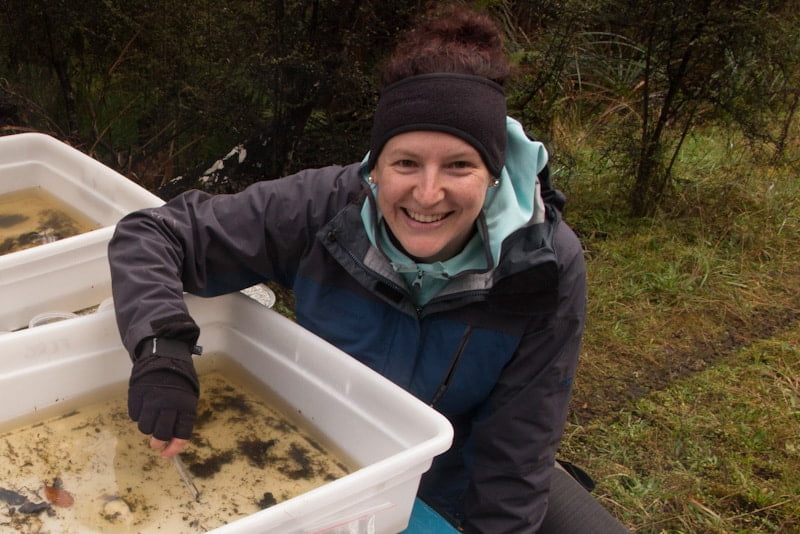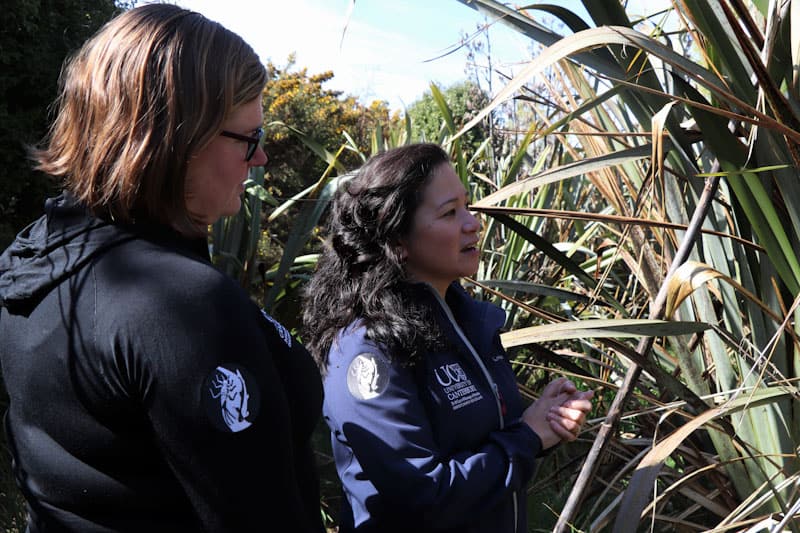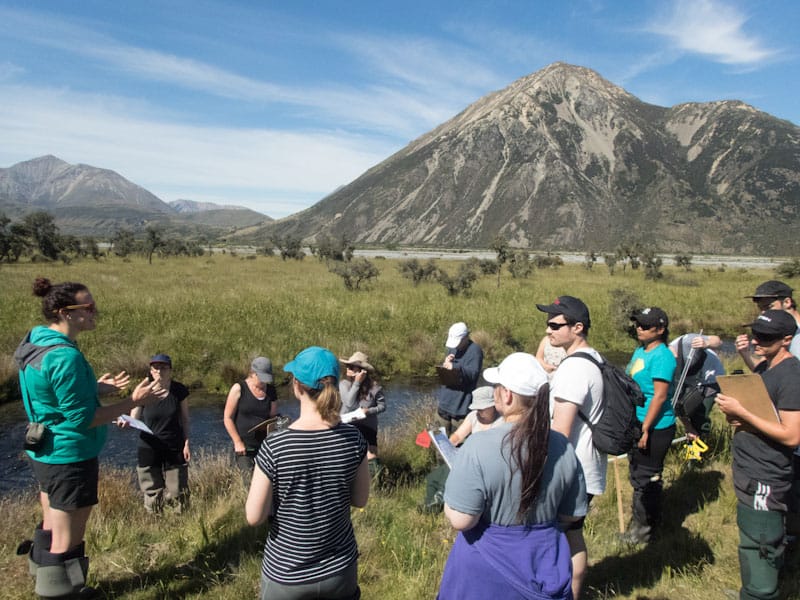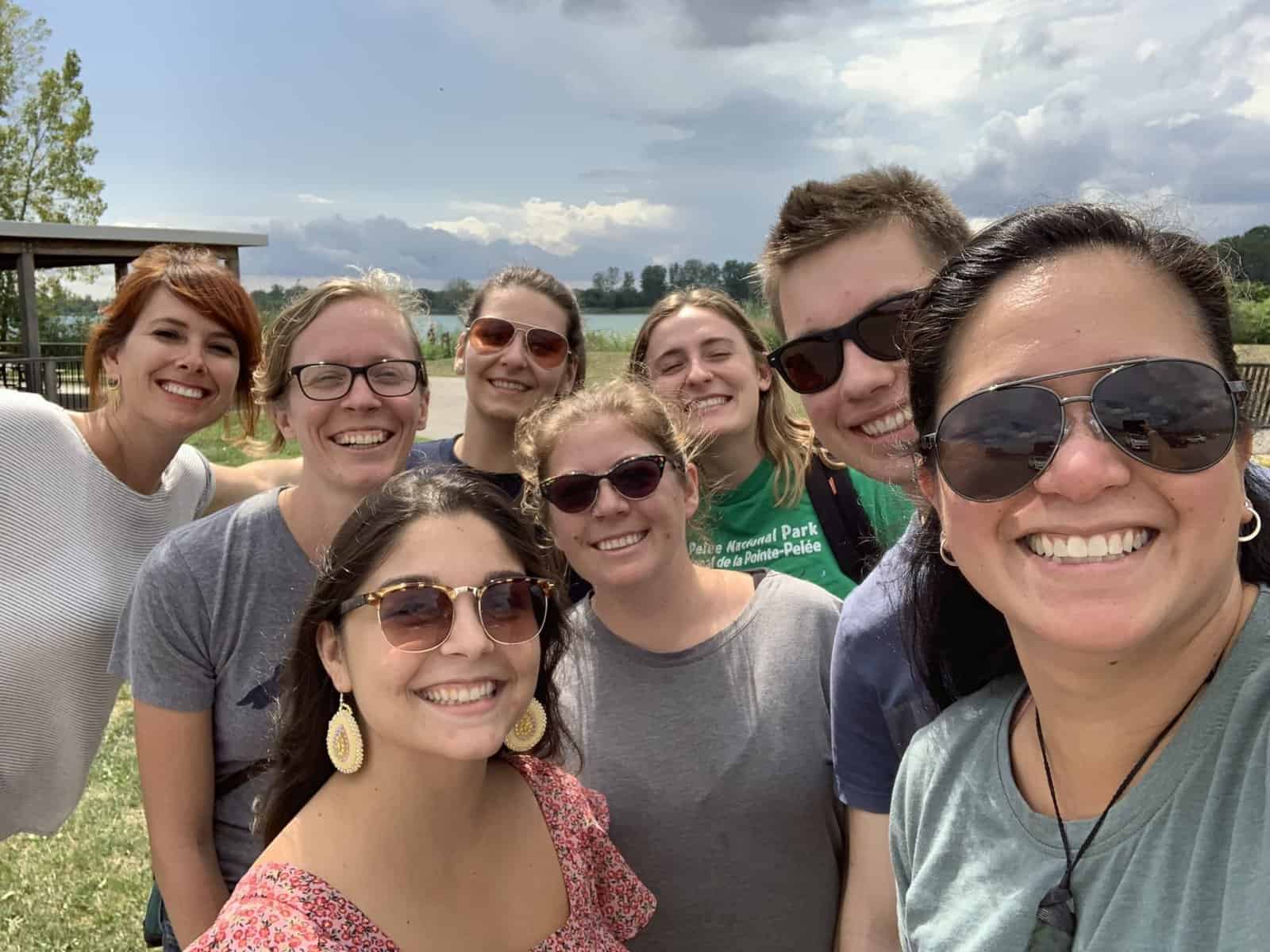
Something Helen Warburton knew all too well when she started a fixed-term lecturing position at the University of Canterbury (UC), having recently finished her PhD.
At the same time Catherine Febria was coming back to research life after having her second child, and was re-evaluating what kind of scientist she wanted to be.
Both the young doctors (of philosophy) were looking for more. More opportunities to lead, to pursue new research and get that vital experience for the CV.
Having different backgrounds and expertise, Helen and Catherine found their skills were quite the complement. When the opportunity to apply for project funding through the BioHeritage Challenge came along, they found it was a great match.
“We discussed the grant opportunity over a cup of coffee and our proposal seamlessly came together from that one chat,” Catherine says.
Their proposal was strongly supported by their mentors, Professors Angus McIntosh and Jon Harding, which came in handy when UC said they were too “early career” (EC) to be in charge.
“Neither of us were able to put our names as principal investigators on the initial funding application because we didn’t have permanent, continuing positions at the University… despite us leading the writing of the application.” Helen says.
Their application poetically looked at resilience, this time the freshwater water kind, and was the fifth of 101 to be submitted.
A clear stand-out, BioHeritage jumped at the chance to support their proposal, but with the caveat that the ECs should be in charge. Helen says that was the game-changer.
“When the Challenge asked for ECs to lead the project it really opened doors for us. Jon and Angus were really supportive of this and it allowed us to take on a role that we likely wouldn’t have been able to easily in the current University framework.”
Over the next two years Catherine and Helen co-led their own research project. They had opportunities to both be mentored and supervise students – something Catherine says was the most valuable part of the whole experience.

“I appreciate the many different ways that we were given a voice and platform, and that we were part of this BioHeritage community. Because of that, it reaffirmed my interest and love of science and its role in solving our biological heritage and environmental challenges.
“The culture created and fostered at BioHeritage was also a very inclusive one that was serious about co-governance with Māori, and in generating science that had real impact and benefits to communities.”
Helen says the experience, contacts and opportunities she gained through those two years changed her on both personal and professional levels.
“One of the key things for me was an opportunity to start learning all the other skills that you need to be a successful researcher/scientist. For example, we got to do the reporting, manage the budget, try to figure out how to successfully delegate work and lead a team of scientists … all of these are such important skills that you don’t really get the opportunity to develop until you get an opportunity like we did.
“I have grown a lot over the last few years and learnt a lot in the process. Being able to lead a project really was really validating – it gave me confidence and some certainty that ‘we can do this and we have lots to offer,” Helen says.

Leaving a legacy
Helen and Catherine were determined to pay forward their EC opportunities by building the capability of others.
They recruited three scientists, all of whom had recently finished their PhDs and became integral parts of the research team – Elizabeth Graham (NIWA), Kristy Hogsden (NIWA) and Richard White (UC).
Their project fostered one of the highest numbers of early career researchers (ECRs) out of all BioHeritage projects: with one student at PhD level and two at Honours, they totalled eight ECRs in a team of 10.
Where are they now?
Helen is working for UC in multiple roles, both in the Waterways Centre for Freshwater Management and also in the School of Biological Sciences. She has also been recruited by BioHeritage as a member of the Strategic Leadership Group.
She says thanks to her time as project co-lead there are more opportunities available to her, but there’s more to it than that.
“I also think about science differently, more broadly and have really embraced the Challenge’s values. Being involved in the Challenge has really broadened my perspectives on science and what we need to do to create impact.”
Catherine has returned home to Canada, where she is now a Canada Research Chair and Assistant Professor at the University of Windsor.
She leads the Healthy Headwaters Lab and says it’s “a dream” to be able to raise her family and do research in the area where she grew up.
Catherine says her new position reflects her former role with BioHeritage.
“Research-wise it aligns with the BioHeritage work we’ve undertaken: unhealthy resilience in our freshwater ecosystems are a global problem and co-producing holistic science-based solutions are key.
“I am very well supported to excel and lead research in freshwater restoration ecology. Here I am leading a team that shares the values and vision of the Challenge, including co-development of research with indigenous and farming communities.”
She’s also been reminded how small the world really is – with one of her first graduate students being a former undergraduate she mentored at UC.

Looking forward
Catherine says “The fostering of early career researchers is a worthwhile investment, and scientific roles are diverse – from primary research to implementation, communication and story-telling to mentorship.”
For any people early in their science career, Helen recommends finding good mentors, keep looking for opportunities, and if you can get involved with a larger organisation like BioHeritage then go for it!
“Simply put, ECs are awesome, have lots to offer and just because they might not have a CV with experience doesn’t mean they can’t successfully lead projects.”